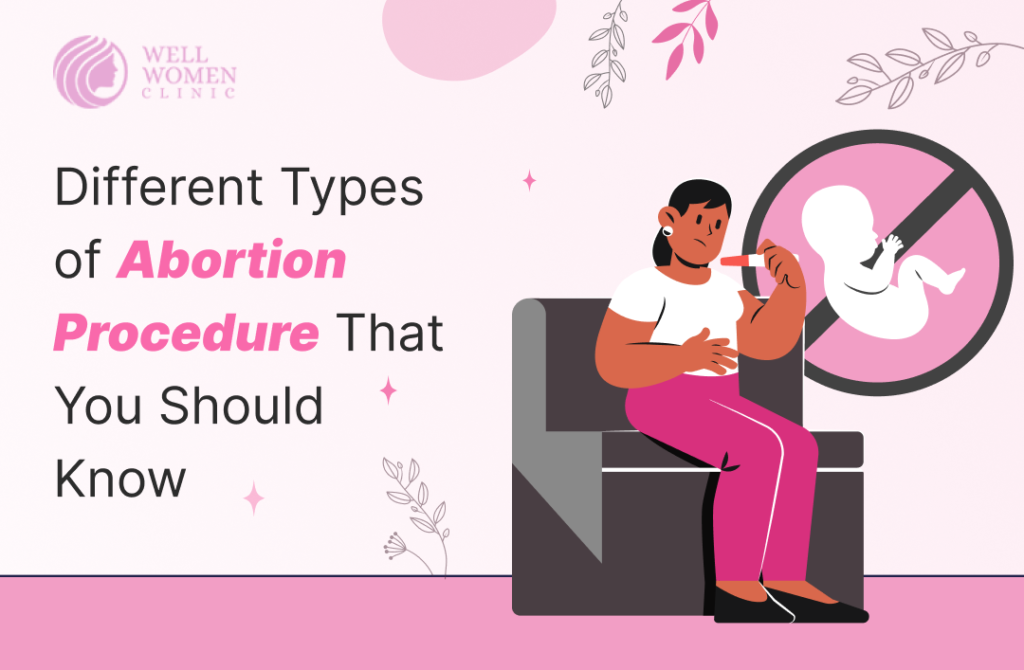Medical Termination of Pregnancy are performed in a variety of settings, including a private abortion clinic in London and hospitals. The kind you receive will almost definitely be dependent on how far along you are in your pregnancy.
You will most likely experience a vacuum aspiration when you are in your first trimester. You will most likely undergo dilation and removal if you are in your second trimester. If you are advanced, you may be experiencing a dilatation and removal.
Almost all abortions operations are performed as out-patient operations. That means you will not be required to remain up all night in the physician’s surgery pathology or hospital following the surgery.
- Before The Surgery
When you call to schedule a consultation, your medical care physician will likely offer you some guidelines. For example, since abortions at clinics are being examined, you may be required to begin the night preceding your surgery.
When you reach the health centre, you will be asked to fill out certain forms and provide your health information. A pre-abortion work will then be performed, including a medical checkup, pregnancy test, lab tests, screening for HIV/Aids, and possibly extra checkups if your situation warrants it. Most physicians would also use ultrasonography to check your pregnancy stage and look for uterine, fetal, or placental problems.
All of the data that your private gynaecologist will go over to you when a brief counselling session assists them in determining which surgery is best for you.
- Management Of Pain
Your physician will also discuss the many kinds of pain management options accessible to you during the process.
You will most likely be given a local anaesthetic For abortion in a clinic, which means your cervix will be anaesthetized, but you will remain conscious. As 600 to 800 mg of ibuprofen is generally adequate to relieve pain, your doctor may additionally prescribe oral medicine to relax you up or gently sedate you, leaving you awake but comfortable. If you want severe sedation, which means you are in a slight slumber throughout the surgery, you can request that sedative medicine be administered through IV.
- Vacuum Aspiration (Suction Abortion)
The majority of abortions in the United States are performed during the first twelve to thirteen weeks after conception. If you choose medical termination of pregnancy at the clinic in your first trimester, you will undergo a vacuum aspiration, commonly known as a “suction abortion.”
Your cervix does not have to be prepared or dilated for such an operation most of the time. However, if you are longer than ten to twelve weeks pregnant, your physician may dilate your cervix slightly before proceeding so that the surgical equipment may reach your uterus. They will most likely implant laminaria, which are sterile seaweed sticks that absorb humidity and expand.
When you are comfortable, your doctor will have you recline on an operating bed with your legs in stirrups, as if you’re getting a pelvic exam. If you are relaxed and sedated, your private gynaecologist will put a surgical instrument called a speculum through your uterus to hold it wide and clean your vagina and cervix with a disinfectant called Betadine.
- Dilation And Evacuation In The Second Trimester
Your physician will utilize ultrasound to detect your pregnancy if you are more than twelve weeks pregnant. The further ahead you are in your pregnancy, the more preparation you might have to do to allow your physique for the operation.
Dilation and evacuation, or D&E, is the most frequent form of second-trimester termination. The first thing a physician will do before performing this treatment is prepared and expand your cervix. They may utilize laminaria sticks that are left in your uterus up overnight, or they may give you a dosage of misoprostol to loosen your uterus.
First, your physician will vacuum and scrape the interior of your uterus using forceps and other instruments. Some physicians may employ a drug to halt the fetal heartbeat before the surgery to receive an injection into your abdomen. Following that, your physician may administer medicine to compress your uterus and decrease bleeding.
- Dilation And Extraction In Late – Term Abortion
If you want to terminate your pregnancy later, you might have to locate a specialist or skilled private gynaecologist to perform a dilation and removal. It is a surgery that doctors typically reserve for whenever there is a significant issue with the fetus or when the parent has medical difficulties.
Other alternatives include labour induction, hysterotomy, and hysterectomy. Because they are more dangerous, physicians only perform them when required. All of the processes leading up to the surgery are identical to those for a D&E. In a hospital, you may be administered general IV anaesthesia for sedation.
Conclusion
You may most likely have cramps for some days and mild bleeding for up to two weeks. If you want to know more about abortion or are looking for a private abortion clinic in London, contact Well Women Clinic.





